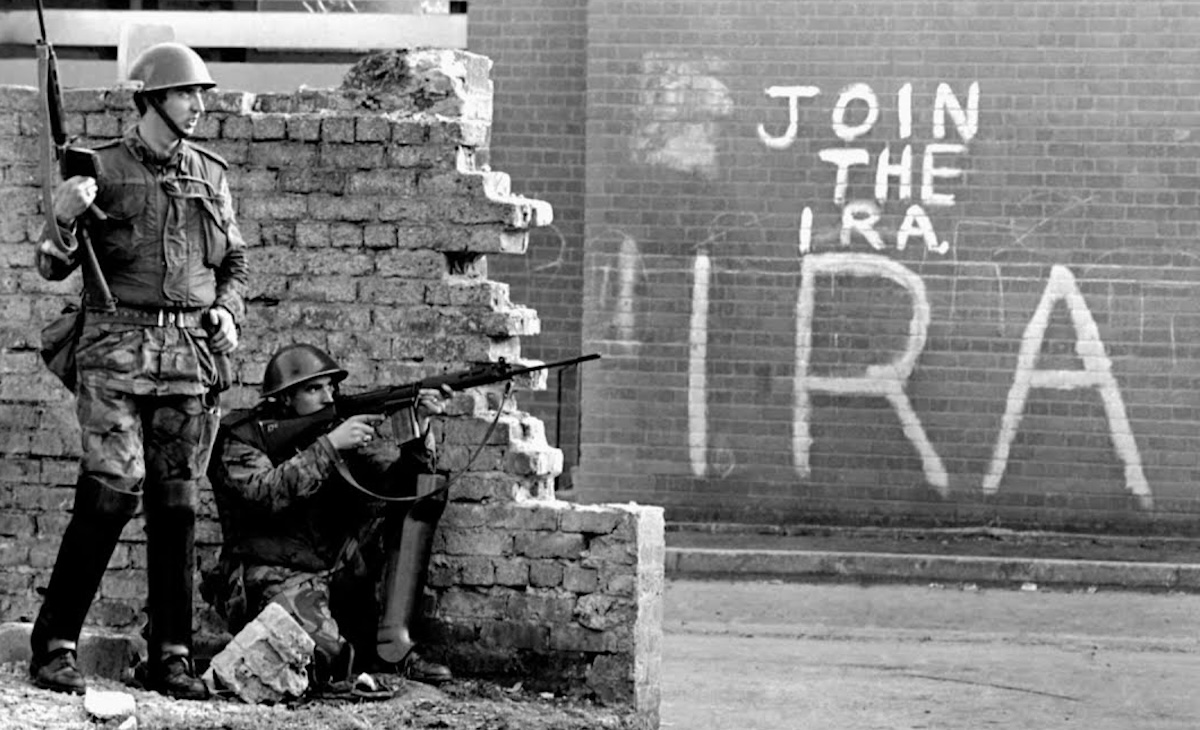
By Brian Feeney (for Irish News)
There was a revealing spat last week between the NIO and academic historians about the British government’s plans to bowdlerise the original historical archival proposals in the Stormont House Agreement (SHA) on legacy.
The NIO laughably insists their current proposals for an official British history of the Troubles are nothing to do with their obnoxious Legacy Act which came into force last week. Luckily, given the local government election results, it won’t be in force for long.
While their planned official history may not be an integral part of the act, no-one is fooled; it is an integral part of their hateful legacy apparatus. Indeed, while in the process of overturning the SHA in November 2021, the charlatan Boris Johnson’s chief spoofer, Brandon ‘I will break international law’ Lewis, complained about ‘the rewriting of history’ and announced plans to commission an official account of the Troubles – ‘a new historical record of the conflict’ spanning the years from the 1960s to the Good Friday Agreement.
The British government feared the narrative of the conflict was being distorted by republicans. Not that the British government would ever distort any historical account, would they? Anyway, that’s the origins of the recent proposal inviting historians to apply to the newly established Expert Advisory Group.
Dr Cormac Moore took it apart in this newspaper last week, building on an article in Politics and Democracy by Professor Marie Coleman which clinically demolished the plan.
Coleman had already written an article, “Can there be an ‘official’ history of the Troubles?”, in the same outlet in January 2022, warning about the dangers of the British government’s approach which had just been mooted by Lewis.
No, there can’t be an official history. The phrase is one of those oxymorons comedians conjure up, a contradiction in terms: you know, like ‘civil service’, ‘military intelligence’, ‘British justice’.
The NIO is fully aware of that so they are calling it a ‘public history’ – meaningless. Coincidence that the guy behind the new title, Sir Joseph Pilling, was permanent secretary at the NIO for eight years until 2005?
Changing an unpopular name or one with unpleasant connotations, like internment, is a British tradition. So Windscale, infamous for nuclear accidents in the fifties, became Sellafield, which of course continues to have accidents. Long Kesh became the Maze.
Official history became public history, but it’s still firmly placed in the British official history series overseen by the Cabinet Office, like the official histories of MI5 and MI6.
You can see why the NIO wants to distance itself from all this. They must know that anything associated with this rotten, lying, corrupt government is contaminated and automatically tainted and so it should be.
This government possesses a reverse Midas touch. As you know, anything King Midas touched turned into gold. Anything this government touches immediately turns into s***.
So it is with their official history. Some academics in the north have already turned down requests to become involved. They are correct to do. No-one should go near it.
Besides the inherent nonsense and absurdity of an official history sponsored, bought and paid for by one of the protagonists, there is the shocking arrogance of announcing its workings the week the hated Legacy Act came into force, an act that only one party in these islands, the Conservative Party, supports.
The week the Conservatives closed down inquests and civil actions, the NIO announced that their approved historians (because make no mistake, the Cabinet Office won’t permit anyone they don’t approve to participate) will see secret documents and write about them, which the bereaved families, now denied access to truth and justice, will never see. Despicable. That’s how much the NIO cares about what those families feel. What hypocrisy. What callousness.
Any historians who go near this tainted process are more to be pitied than laughed at. Do they really believe the British government will show them all the material, when some Anglo-Irish material from the War of Independence time is still closed and some from the present Troubles closed until 2060?
Do they believe the British haven’t destroyed stacks of files, just as they did from other colonial wars? They even hid the existence of a vast secret repository with 240,000 files at Hanslope Park near Northampton until 2011.
Historians footnote their sources so that others can examine them and check their interpretations and conclusions, but they can’t with an ‘official history’.
If they’re not for public view who then are they for? The people who commissioned it and paid for it, stupid.
![[Irish Republican News]](https://republican-news.org/graphics/title_gifs/rn.gif)
![[Irish Republican News]](https://republican-news.org/graphics/title_gifs/harp.gif)

